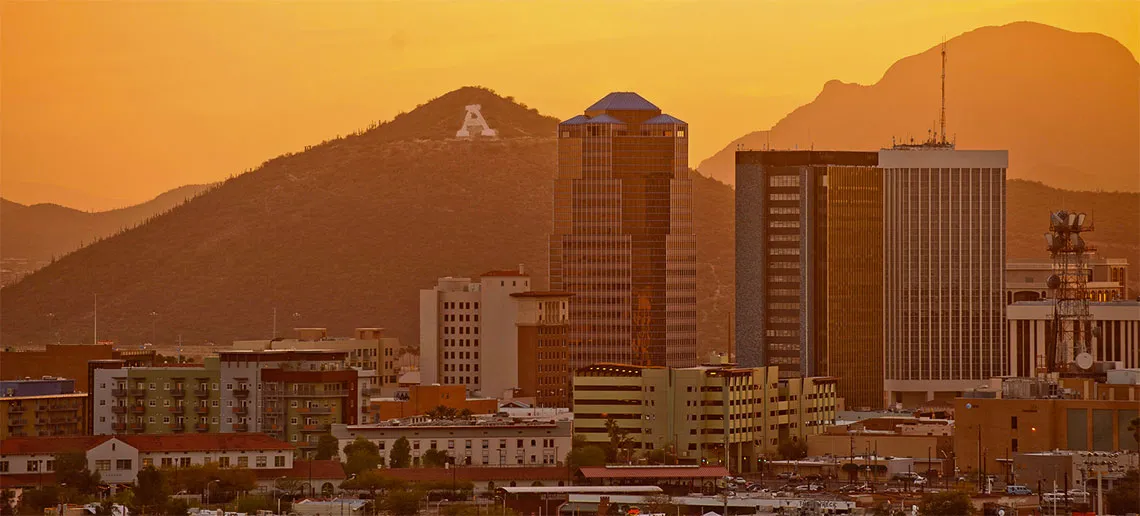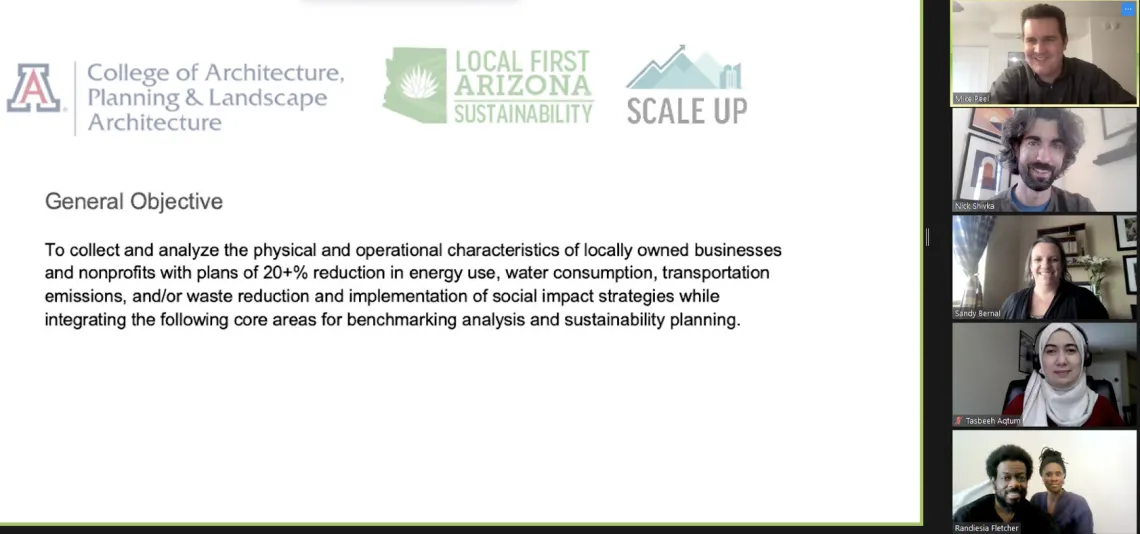CAPLA Students and Faculty Partner with Local First Arizona to Help Organizations Develop Sustainability Plans

Twice per year, cohorts of up to a dozen businesses and nonprofits in Tucson and Phoenix participate in SCALE UP (Sustainable Communities Accessing Lending and Expertise Upon Performance), an award-winning program sponsored by the State of Arizona and offered by Local First Arizona (LFA).
UArizona’s Altaf Engineer, assistant professor of architecture, and Sandra Bernal-Cordova, lecturer in architecture—who together helped build the SCALE UP curriculum and train its facilitators—are preparing to engage students and recent graduates of the College of Architecture, Planning and Landscape Architecture in the process, as well.
“Our goal is to provide students experience working with locally owned businesses in developing and executing sustainability plans,” says Bernal-Cordova.
SCALE UP offers a seven-week workshop to help the organizations build out their sustainability plans, with goals of reducing at least 20% of their energy use, water consumption, waste generation and/or transportation emissions.

CAPLA alumna Tasbeeh Alaqtum (second from bottom) works with the Harris Fletcher Enterprises team (bottom), CAPLA Lecturer Sandra Bernal-Cordova and Local First Arizona team members Mike Peel and Nick Shivka (top).
Student interns at the undergraduate and graduate level will collect and analyze quantitative and qualitative data that link sustainability with wellbeing best practices in the built environment. They then will gain the skills necessary to evaluate the physical and operational characteristics of the SCALE UP cohort participants to help determine where the energy, water, waste and transportation emissions reductions may be found in relation to the social and wellbeing benefits. Finally, interns will help organizations evaluate their social impact in the community.
“This incredible program offers real solutions that are attainable,” says Libby Tobey of Pop Cycle Tucson, which participated in the program’s pilot cohort in 2018. “The ability to lessen our ecological footprint, contribute to a more circular economy and bring in more social justice to the community had never seemed achievable until I took this class.”
Other SCALE UP participants have included Blue House Coffee, Chapman Honda, Fox Tucson Theatre Foundation, Food Conspiracy Co-op, Hotel Congress, YWCA of Southern Arizona and Agro Land and Cattle Co., operators of Pinnacle Peak Steakhouse, Trail Dust Town, El Corral and Savoy Opera House.
The opportunity for students and organizations to learn about sustainability and develop action plans is thanks to a unique partnership between CAPLA and Local First Arizona, a nonprofit founded in 2009 that supports community and economic development throughout the state through education, training and program development.
“The partnership with Local First Arizona reflects our commitment to helping local businesses accomplish their health and sustainability goals in this particularly challenging time,” says Engineer.
“The plan is to offer a real team dynamic between the organizations and the students,” says Bernal-Cordova.
For example, in their work with Harris Fletcher Enterprises—which helps those experiencing housing, food and financial insecurities become “socially responsible” through art and other mediums—Tasbeeh Alaqtum, a 2020 graduate of the Master of Science in Architecture program, and the business partners piloted what the process will be for students at CAPLA. Co-leading the pilot project with Engineer and Bernal as well as the LFA sustainability team of Mike Peel and Nick Shivka, Alaqtum completed a social impact checklist, cost-benefit analysis of the organization’s food forest project and recommendations on reducing energy, water and gas consumption.
“I would like to Thank Local First Arizona and the SCALE-UP team for giving me this chance to contribute to this fascinating program,” says Alaqtum. “It has been a phenomenal experience, offering me the chance to apply what I learned in school and interact with local businesses. By working on the energy, water and sustainability aspects of a real-world project, I have sharpened my architectural design skills and enjoyed every moment of the work.”



